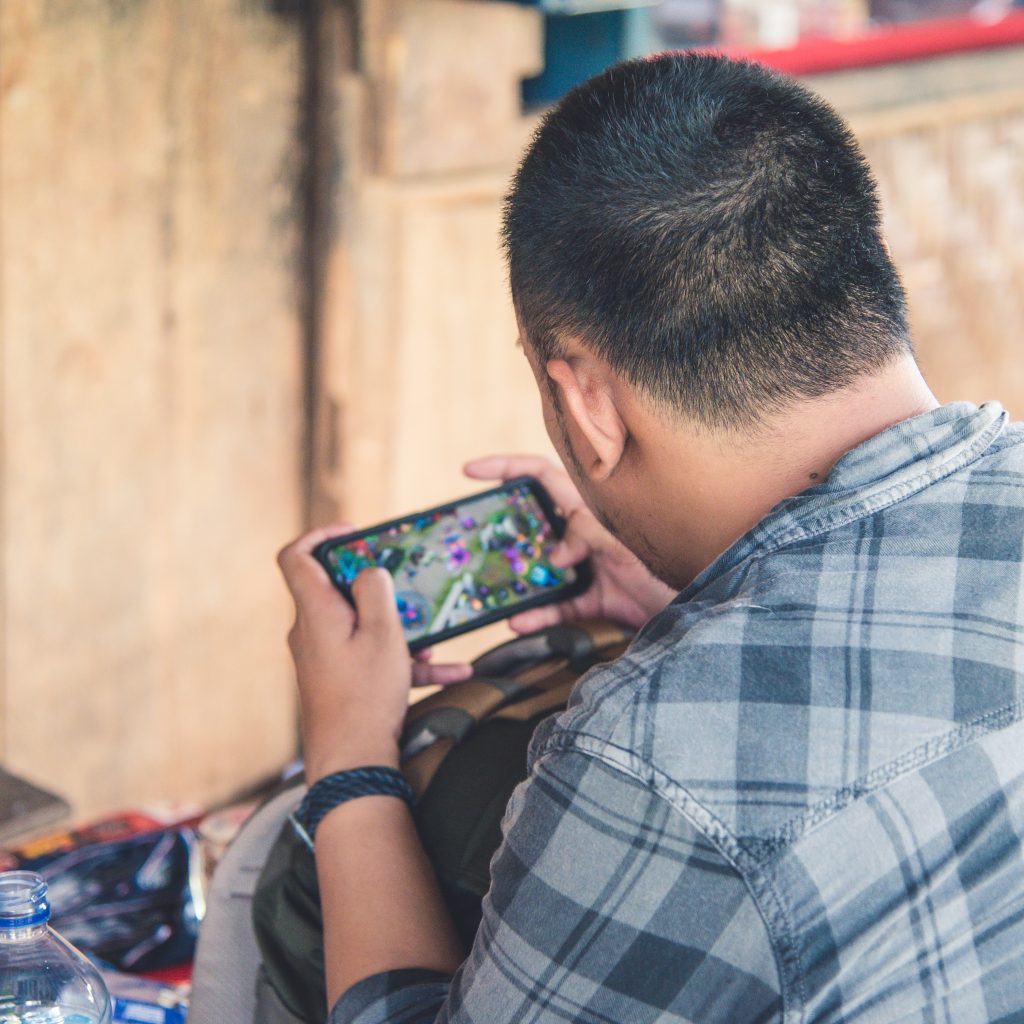Mobile gaming addiction can be a difficult problem to deal with in relationships, but it is possible to help your partner overcome their addiction. By understanding the underlying causes, setting boundaries, and offering support, you can help your partner take steps towards overcoming their addiction and improving your relationship. If you need additional help or advice, there are many resources available that can provide guidance and support.
if you have a partner that’s addicted to mobile gaming or you know someone facing the same problem, keep reading this article, it includes a lot of tips to help addicted gamers to overcome their issues.
How to Deal with a Partner’s Excessive Mobile Gaming Habits?
If a partner’s excessive mobile gaming habits are causing distress in your relationship, it is important to address it head-on. Express your concerns and feelings calmly and listen patiently to their response. Help them recognize the potential negative consequences of their behavior and work together on developing strategies to reduce or moderate usage. Consider providing alternative activities which could have a positive impact on your relationship, such as going out for walks or finding new hobbies to do together.

How do I know if my partner is addicted to mobile gaming?
It can be difficult to tell if your partner is addicted to mobile gaming, as the signs may not always be obvious. However, there are some common signs that you should look out for that could indicate an addiction.
What signs should I look for?
If you are concerned that your partner may be addicted to mobile gaming, there are several signs you can look out for. These include:
• Spending an excessive amount of time playing games, often at the expense of other activities or relationships.
• Becoming irritable or agitated when not playing games.
• Lying about how much time they spend playing games.
• Neglecting responsibilities, such as work or household chores.
• Becoming isolated from family and friends.
• Feeling anxious or depressed when not playing games.
• Having difficulty controlling their gaming habits.
• Experiencing withdrawal symptoms when not playing games.
If you notice any of these signs in your partner, it is important to talk to them about it and seek help if necessary. There are many resources available to help people overcome their addiction, such as counseling and support groups.
What are the potential risks of gaming addiction?
The potential risks of gaming addiction can be serious and far-reaching. Gaming addiction can lead to a lot of problems, such as:
1. Poor posture
Poor posture is a physical health risk of gaming addiction. It can be caused by sitting in the same position for long periods of time while playing mobile games, which can lead to back and neck pain, as well as headaches. Poor posture can also cause fatigue and difficulty concentrating. It is important to take regular breaks from gaming and practice good posture when playing in order to reduce the risk of developing these issues.
2. Carpal tunnel syndrome
Carpal tunnel syndrome is a condition caused by repetitive motions, such as those used when playing video games. It can cause pain, numbness, and tingling in the hands and wrists. To reduce the risk of developing carpal tunnel syndrome, it is important to take regular breaks from gaming and practice good hand and wrist posture while playing.
3. Headaches
Headaches can be a symptom of gaming addiction, as it can be caused by sitting in the same position for long periods of time while playing games. It is important to take regular breaks from gaming and practice good posture when playing in order to reduce the risk of developing headaches.
4. Depression
Depression is a mental health risk associated with gaming addiction. People who are addicted to gaming may become isolated from their friends and family, which can lead to feelings of loneliness and depression. It is important to seek help if you or your partner are experiencing symptoms of depression.
5. Anxiety
Anxiety is another mental health risk associated with gaming addiction. People who are addicted to gaming may become overwhelmed by the amount of time they spend playing games, leading to feelings of anxiety and stress. It is important to seek help if you or your partner are experiencing symptoms of anxiety.
6. Social isolation
Social isolation is a risk associated with gaming addiction, as it can cause a person to become distant and neglectful of their responsibilities in the relationship. It is important to make time for social activities and communication with friends and family in order to reduce the risk of becoming socially isolated.
7. Financial problems
Financial problems can be a risk of gaming addiction, as people may spend large amounts of money on games or gaming equipment. It is important to set a budget and stick to it in order to reduce the risk of developing financial problems due to gaming addiction.
8. Sleep deprivation
Sleep deprivation is another physical health risk associated with gaming addiction, as people may stay up late playing games and neglect their sleep. It is important to set a regular sleep schedule and stick to it in order to reduce the risk of developing sleep deprivation.
9. Poor nutrition
Poor nutrition is a physical health risk associated with gaming addiction, as people may neglect their diet in favor of playing games. It is important to make sure you are eating a balanced diet and getting the necessary nutrients in order to reduce the risk of developing poor nutrition due to gaming addiction.
10. Weight gain
Weight gain can be a physical health risk associated with gaming addiction, as people may neglect their physical activity in favor of playing games. It is important to make time for physical activity and exercise in order to reduce the risk of developing weight gain due to gaming addiction.
How can I Talk to my Partner About Their Mobile Gaming Habits?
It is important to talk to your partner about their mobile gaming habits in a respectful and understanding manner.
- Start by expressing your concern for their wellbeing, and explain why you are worried about the amount of time they are spending playing games.
- Ask them how they feel about their gaming habits, and be open to listening to their perspective.
- Offer support and suggest ways that they can reduce the amount of time spent gaming, such as setting a time limit or taking breaks.
- Let them know that you are there to help and support them in any way that you can.
- Finally, remind them of the potential risks associated with gaming addiction and encourage them to seek professional help if needed.
Who can Help my Partner if They are Addicted to Mobile Gaming?
If your partner is addicted to mobile gaming, there are a number of professionals who can help. The first step is to seek out a mental health professional such as a psychologist or psychiatrist. These professionals can provide counseling and therapy to help your partner understand their addiction and develop strategies for managing it. Additionally, You may be able to refer your partner to support groups or other resources that can help your partner cope with their addiction.
It is also important to seek out the help of a medical doctor. A doctor can assess your partner’s physical health and provide advice on how to reduce any potential risks associated with gaming addiction, such as sleep deprivation or poor nutrition. The doctor may also be able to refer your partner to other professionals who specialize in treating gaming addiction, such as a nutritionist or physical therapist.
What Strategies Will be More Helpful for Dealing with Game Addiction?
There are a number of strategies that can be helpful for dealing with game addiction. Firstly, it is important to set limits and boundaries around gaming. This could include setting a time limit for how long your partner can play games each day or having certain days where gaming is not allowed. Additionally, it is important to encourage healthy habits such as getting enough sleep, eating nutritious meals, and exercising regularly
It is also important to create a supportive environment for your partner. This could include spending quality time together, engaging in activities that do not involve gaming, and providing emotional support. Additionally, it is important to be patient and understanding when talking to your partner about their addiction. It is also helpful to provide positive reinforcement when they make progress in reducing their gaming habits.
How can I set boundaries in this situation?
When it comes to helping a partner who is addicted to mobile gaming, it is important to understand the underlying causes of their addiction and seek out professional help. Additionally, setting boundaries and providing support can be helpful in managing the addiction. Ultimately, with patience and understanding, you can help your partner overcome their addiction and improve your relationship.
When setting boundaries, it is important to be clear and consistent. This could include setting a time limit for how long your partner can play games each day or having certain days where gaming is not allowed. Additionally, it is important to make sure that these boundaries are enforced in order to be effective. It is also helpful to provide positive reinforcement when your partner follows the boundaries you have set.

Conclusion
Mobile gaming addiction can be a difficult problem to deal with in relationships, but it is possible to help your partner overcome their addiction. By understanding the underlying causes, setting boundaries, and offering support, you can help your partner take steps towards overcoming their addiction and improving your relationship.
